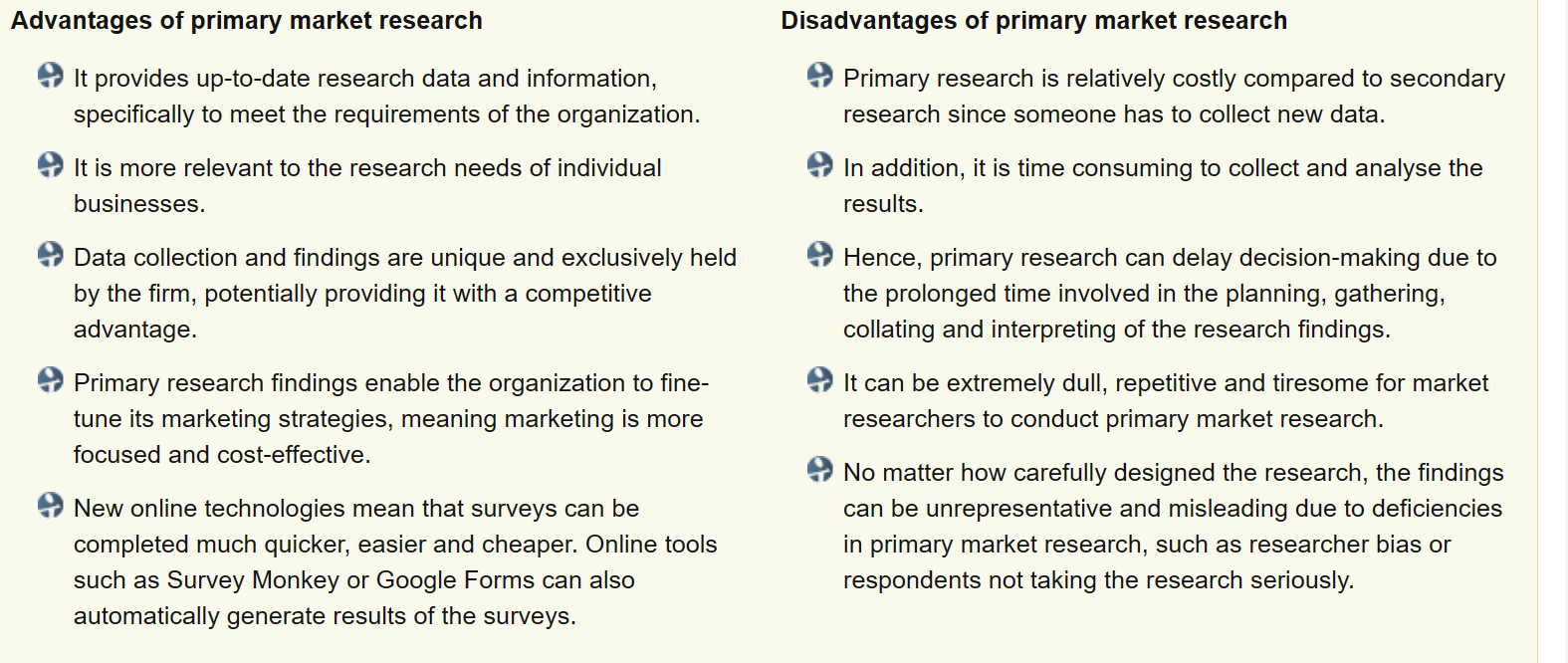Primary research (see 4.4 Why and how organizations carry out market research) is about first hand data.
- surveys
- interviews
- focus groups
- observations
Surveys
advantages:
- lets researchers get large amounts of data quickly
- online surveys are cheap (compared to interviews)
disadvantages:
- face to face surveys are expensive and time consuming
- interview bias (i.e. from poorly worded questions). can generate unrepresentative results
- open ended questions are time consuming to answer (surveys can be time consuming!)
- people may not answer truthfully
Interviews
advantages:
- good for qualitative data
- interview can clarify with follow up questions disadvantages:
- small amount of people sampled
- interviewer bias
- time consuming and therefore costly
Focus groups
- get a bunch of people with similar characteristics (i.e. age, gender) or interests (i.e. GAMERS, food critics). You put them in a group to discuss questions advantages:
- identify desires of a specific market segment
- get opinion and attitude of customers disadvantages:
- money, participants are paid to participate
- not representative of entire market
- peer pressure to give polite answers
Observations
- stalk customers and see how they behave and react to certain situations advantages:
- participants don’t have to be willing to partake in it
- accurate and realistic results; removes bias! disadvantages
- time consuming
- if subjects know they are being monitored than they act differently
